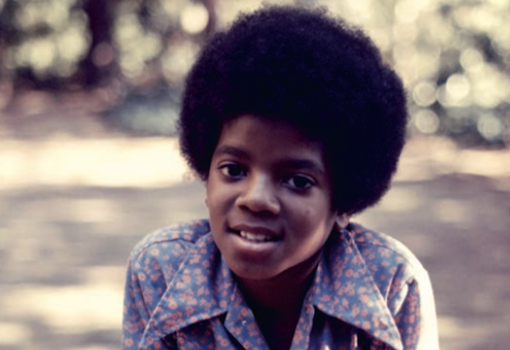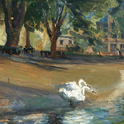As the orchestra playing Vivaldi’s Summer fades out an air of anticipation builds. Then the solo violinist takes over, swaying with feeling, his expressive eyebrows marking each dynamic change—a picture of poise and maturity. This could be a top-class -performance in any of the big classical venues. Except that the soloist has a half-size violin, and he’s only 4'4".
In April, 10-year-old Christian Li became the youngest ever winner at the prestigious Menuhin competition—the so-called Olympics of the Violin. When I spoke to Li after his performance, he grinned gleefully as he recalled overhearing an older competitor mutter: “How embarrassing it would be to lose to a -10-year-old!” Li shared first prize with 11-year-old Chloe Chua. All six finalists in the Junior category were 13 or under—“very unusual,” according to the head of the competition, Gordon Back. “Are they all getting younger and younger?” I ask. Back mulls over my question. “It feels like they are. I started the violin at 11. Now people are starting at a younger age.”
Musical history is littered with precocious talents. Mozart began performing the clavier at the Austrian court aged only five, and was later hauled round Europe’s capitals by his overbearing father. Michael Jackson confessed to feeling so terrified of his disciplinarian father Joe (who died in June), he would be physically sick. But while it’s easy to feel sympathy for these little lost boys, would they have become the geniuses they undoubtedly were without the determination of their families? Did they sacrifice their childhoods for the sake of our entertainment? And what of those pushy parents?
Tonya Harding, the disgraced figure skater who was involved in a conspiracy to injure her rival Nancy Kerrigan, was bullied into success from a young age. In the recent film I, Tonya, her terrifying mother, when challenged, has no regrets: “I made you a champion, knowing you’d hate me for it,” she tells her adult daughter. “That’s the sacrifice a mother makes! I wish I’d had a mother like me instead of nice.”

“When Lang Lang’s father thought his son had failed, he told the nine-year-old to commit suicide”
Such musical prodigies were once a rarity but appear to be becoming more common. Last year, five-year-old Anke Chen, a cuddly toy resting on her piano, played a Bach Concerto on The Ellen Showand got a standing ovation. Over the last decade we have seen pianist Umi Garrett produce two albums by the age of 14, composer Alma Deutscher have a full-length opera premiered at 11, and Singaporean violinist Samuel Tan win the Postacchini competition in Italy while still nine. On YouTube, you can’t move for toddlers taming The Well-Tempered Clavier. “We used to have around three classical music prodigies coming along every decade or so, but I would say now we have probably around 100,” regular competition judge and luthier Florian Leonhard told me.
Is this all a coincidence? Or is there really a mass movement of remarkably talented young musicians coming through the ranks? Yoheved Kaplinsky, professor of piano at New York’s -Juilliard School, confirmed that her applicants are getting younger and younger. “There’s a limit to how much younger they can get unless they’re born playing Chopin—which may happen one day,” Kaplinsky joked. “We have children of seven or eight playing with more emotional maturity than teenagers, and mastering repertoire that past generations wouldn’t have tackled for another decade. The level is astounding.”
As (nearly) every parent will testify, even if your children are reasonably keen it’s hard to get them to play their scales and practise meaningfully—especially in the era of distracting smartphones and video games. So to become a prodigy requires a few prerequisites. Parents don’t have to be musical but they must expose their children to music. They need to be thoroughly dedicated to their children’s success. They need to choose the right teacher. But most of all, the children themselves must be inspired, determined and hard working.
Menuhin winner Christian Li began to play the violin aged five. When his talent became obvious at eight, his parents took him to Robin Wilson, head of violin at the Australian National Music Academy in Melbourne. Li practises three or four hours a day, and in the run up to the competition was given special permission to leave school early. When I asked him if his parents made him practice, or if he ever got fed up with music, Li’s little face contorted in consternation—he didn’t seem to register what I was saying.
Violinist Tianyou Ma, fourth in the Menuhin Senior category, was also flummoxed at the idea that he might need prompting. He claimed to practise a mere two hours a day—but said he had complete focus when he does so. Now 17, Ma was labelled a prodigy by the media aged 11. “I’m a granddad now,” he smiled. His musical ability was recognised when, aged three, he was listening to his musician grandfather teaching a pupil. Suddenly Ma shouted out “that’s not a G it’s an F,” revealing that he had -perfect pitch—the rare ability to identify notes in isolation. His parents moved to Australia from Shenzhen in China to help nurture his talent, and he’s now at the Menuhin school in Surrey.
“For me, the single most important quality is motivation,” confirmed music psychologist Gary McPherson, editor of a book on prodigies. “They have a great love of music—like children who play sport—some love the idiom and don’t get distracted. They love one thing rather than a number of things—Michael Jackson wanted to be the king of pop, Lang Lang wanted to be the best in the world.”
That may be so but both Jackson and Lang Lang bore the brunt of abusive fathers. The 36-year-old -Chinese pianist, probably the closest thing the classical world has to a global star, has talked openly about his policeman father’s almost unhinged ambition for him. He moved nine-year-old Lang Lang to Beijing to fulfil his ambition that his son would become the best pianist in China. But when Lang Lang was told by his teacher that he wasn’t good enough to get into the conservatoire, his furious father told him he might as well commit suicide—and handed him a bottle of pills.
Did other prodigies have their cuddly toys threatened with burning? Were they forced to stay out in the cold until they knuckled down?
Given that many musical prodigies are East Asian, it’s easy to slip into cultural stereotypes about “Tiger Mothers”—or indeed fathers. Li is Australian, but of Chinese background. From what it’s possible to gather from our interview, he didn’t look scarred or obsessive. On the contrary, he seemed a cheerful boy with a cheeky twinkle in his eye. Just like other boys his age, he plays football, runs, swims and is fascinated by space.
Although psychologists still come across children like Lang Lang who have been put under “obscene pressure,” I’m told that the fashion now in Asian households is for a more sophisticated kind of encouragement. Pushy parents have learned that there are few jobs in classical music, and hardly any paths to a life of riches. There is also a creeping realisation that skill isn’t enough—you have to be enticing and promotable. Lang Lang is an exception, not the rule, and for many prodigies early success will be the high point of their professional careers.
Some cope better than others at peaking before secondary school. Britain’s Jennifer Pike was 12 when she won the BBC Young Musician of the Year title—the youngest person ever to do so. “The thing about music is that it does become apparent if you are cut out for it quite early on. I started just before I was five and I just loved it,” said Pike, who is now 28. Her musical trajectory was carefully managed by her music teacher father and she had a balanced childhood that mixed performing with other interests such as tennis and writing. She studied music at Oxford before turning professional. She is now an in-demand recitalist and soloist.
Others fare less well. Florian Leonhard told me a story of a young girl he helped after noticing her as a 10-year-old in competition. “She could have been the best of her generation, but a few years later she gave it all up,” he sighs. “She said to me: ‘When I was younger I was pushed all the time... I just hate it.’”
The story brings to mind Wimbledon champion Andre Agassi, whose father pushed him so hard that he hated tennis but found as an adult that it was the only thing he could do. The phenomenon of burned-out young tennis player was so prevalent at one time that a minimum age limit was introduced for adult competitions.
Maybe there should be one in music. After all, what purpose does it serve to have primary school children outshine adults? Given that it’s rare for prodigies to develop into adult geniuses, or even moderately successful adult musicians—and after such precocity, is moderate success ever enough?—would they not be better hiding their light under a bushel until the time was right? There’s no point being brilliant at 10 when you need to be good at 20, 30, 40 and beyond.
This is a point often made by the celebrated pianist Mitsuko Uchida. Uchida—who began to take lessons aged three in Japan, but only really became enthusiastic when her diplomatic father was posted to Vienna aged 12—has complained that record companies are too keen to showcase early talent to the detriment of older musicians. She is patron of a charity, the Borletti-Buitoni Trust, which supports emerging musicians above the age of 20. “I think it’s a natural instinct to be attracted to talented young kids,” Susan Rivers, the trust’s chief executive, told me. “But I fear for them. They burn out, the public loses interest, there’s always another youngster coming out…”
Musicians need to have life experience—fall in love, have their hearts broken, meet people, explore nature—to be able to give a musical performance of a piece written by and for adults. To build the foundations of a long career, they need time to learn a full repertoire and play chamber music, interacting with other musicians, rather than just focusing on solos.
“Being a soloist isn’t glamorous. It’s a lonely life,” said Rivers. “Once you grow up and mum and dad go, you find you haven’t built up a friendship network before you go to concert halls around the world all alone. It’s heartbreaking.”
Some psychologists class musical prodigiousness as something akin to an illness. In his award-winning book Far From the Tree, psychologist Andrew Solomon includes musical prodigies alongside autistic, disabled and even murderous children. “Prodigiousness and genius… are very distancing for people who have them,” Solomon has said. After all, a six-year-old trying to play Rachmaninoff can’t talk to fellow six-year-olds about it; nor can he talk to adults playing Rachmaninoff about being six.
Many parents, far from being pushy, are unable to cope with a child who exhibits such extraordinary gifts. It’s a difficult balance to strike: a child can be damaged by being pushed too hard, but also by having his or her talent ignored. After a certain point, autonomy is key. Venezuelan piano prodigy Gabriela Montero quit a promising career but returned to music later on her own terms, specialising in improvisation.
Maybe the biggest disservice done to these children is the media interest. The thirst to write about prodigies is an understandable journalistic trait. (This article is a case in point.) The temptation for promoters to exploit them is great. But it all feeds the unhealthy celebrity culture where people are built up and then spat out when they don’t live up to the hype—or simply grow up. Witness the fate of “voice of an angel” Charlotte Church who was tortured by the tabloids when she began falling out of nightclubs, or violinist Vanessa Mae, who has become as well known for her wet T-shirt photos as her performances.
As Pike says of her early experiences: “Being taken apart to work out what makes me tick, giving an interview on the process of my existence and then going on stage for a concert—that’s hard to do at eight! Of course it affects you.”
Our almost hysterical fetishisation of young success is unhealthy. Children specialise too early and are quick to discard endeavours in which they don’t immediately shine, losing the opportunity to enrich their lives and become, if not great players, good listeners.
Perhaps we should worry less about creating more prodigies and more about encouraging mere mortals to love and play music, to play sport or take up mathematics. After all it is the fans or connoisseurs who are the lifeblood of any art. And who knows, perhaps a normal balanced childhood, where playing music is one part of life’s joyfulness, will lead to more emotionally mature and expressive performances in later life. To paraphrase CLR James writing on cricket: “What do they know of classical music who only classical music know?”












